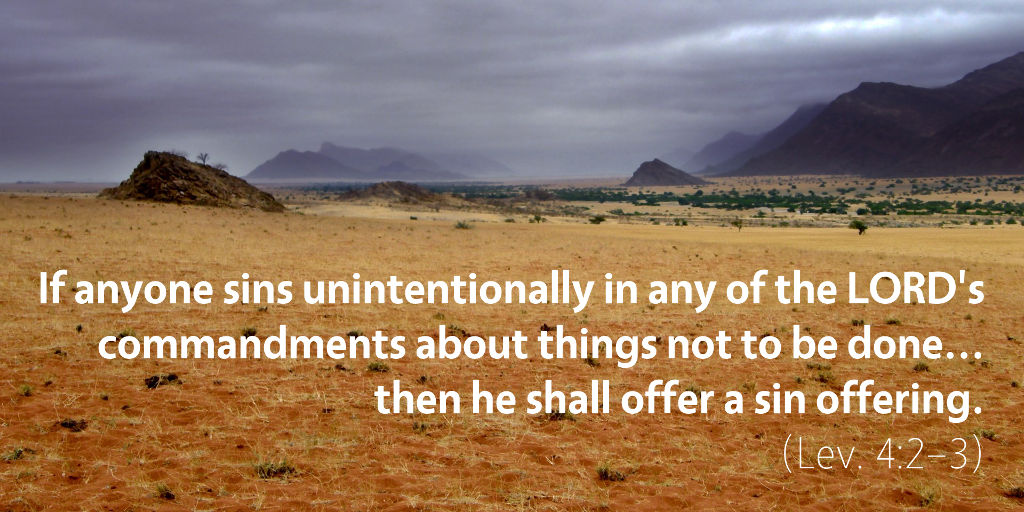Bible Readings for April 1st
Leviticus 4 | Psalms 1–2 | Proverbs 19 | Colossians 2
Yahweh’s instructions for presenting a sin offering stretch across Leviticus 4 and 5, and as we study these rules, remember that the sin offering was not the primary sacrifice offered to make atonement for sins. As we discussed yesterday, the burnt offering—in which the entire sacrifice was burnt up on the altar to symbolize the worshiper’s complete surrender to Yahweh, as well as Yahweh’s complete acceptance of the worshiper—was the sacrifice that Israelites routinely made to atone for sins (Lev. 2).
The sin offering, though, was made for specific sins that had come to the attention of Israelites. So, the sin offering would be made for the kind of sin that people had been committing for some time, only to suddenly recognize their guilt before Yahweh.
We should not overlook the fact that the word “unintentionally” comes up four times in Leviticus 4:2, 13, 22, and 27. The sin offering was a sacrifice that could only be offered for sins that were made inadvertently, without deliberate intentionality to choose sin. Then, when the person (or the people) sinning recognized the sin, the blood of the sin offering would atone for that specific sin (Lev. 4:20, 26, 31).
But what about sins that wouldn’t qualify as unintentional? In fact, there was no sacrifice available for deliberate sins, which are called “high-handed sins.” Here is what Yahweh commands in Numbers 15:30–31: “But the person who does anything with a high hand, whether he is a native or a sojourner, reviles the LORD, and that person shall be cut off from among his people. Because he has despised the word of the LORD and has broken his commandment, that person shall be utterly cut off; his iniquity shall be on him.”
Long-term, we should recognize that the limitations of the sin offering (and the guilt offering, which also only covered unintentional sins: Lev. 5:14, 5:17, 6:4) represent a major shortcoming on the part of the old covenant sacrificial system. The sacrifices held out a measure of mercy, but that measure of mercy only extended so far. If you had sinned with a high hand, you had no sacrifice to cover your sins.1
In this way, we see that the old covenant sacrificial system was good, but not perfect. Eventually, God’s people would require a better sacrifice—not only one that would need to be offered once for all, but one that could atone for the most egregious and high-handed of sins. And indeed, God provided a sacrifice capable even of atoning for the sin of murdering the Son of God himself.
Hear, then, the promise of the gospel for your high-handed sins: “But as it is, Christ has obtained a ministry that is as much more excellent than the old as the covenant he mediates is better, since it is enacted on better promises” (Heb. 8:6).
1 Ligonier Ministries, “The Sin Offering.”
Podcast: Play in new window | Download (5.3MB) | Embed
Subscribe: Apple Podcasts | RSS | More

Scripture quotations are from The Holy Bible, English Standard Version copyright © 2001 by Crossway Bibles, a division of Good News Publishers. Used by permission. All rights reserved.


